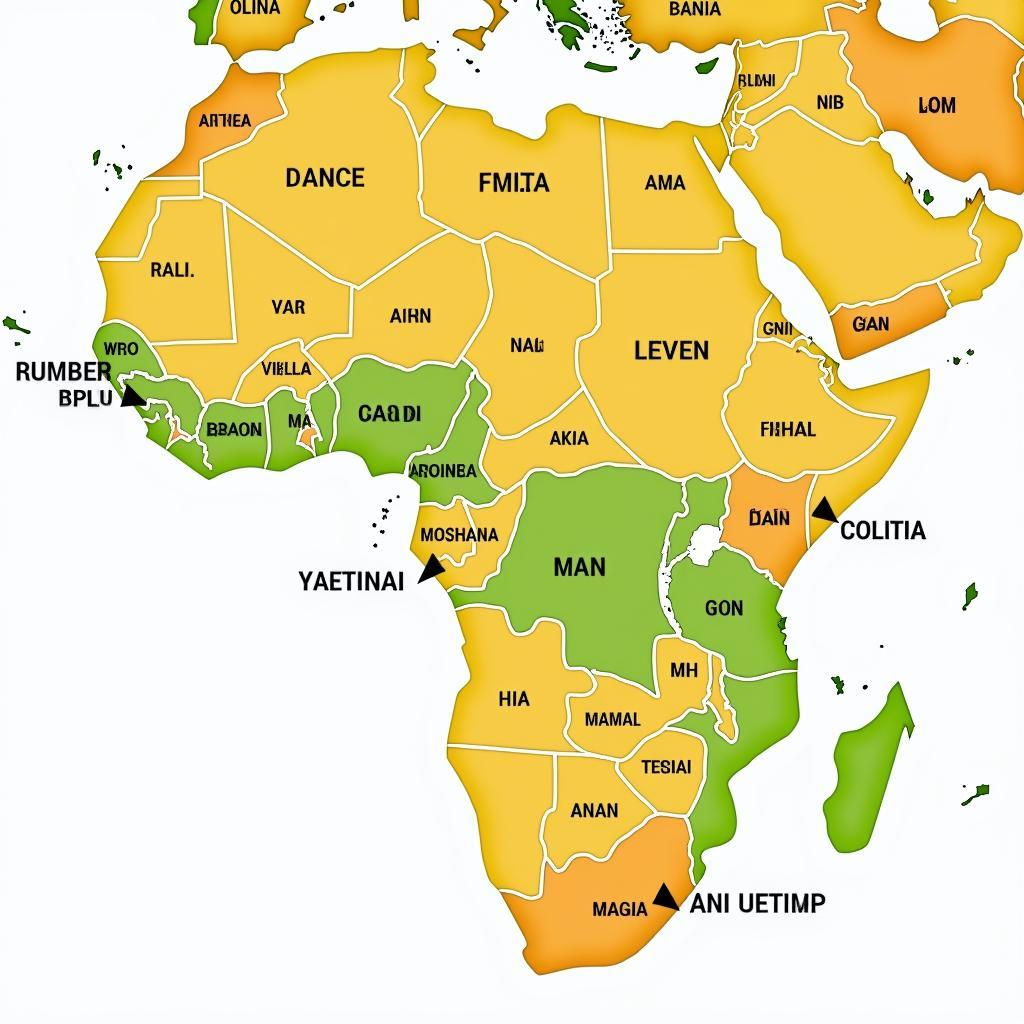African Countries in the News: UPSC Examination Insights
Africa is a continent of immense diversity, rich history, and vibrant cultures. It’s no wonder that African countries frequently make headlines, both for their challenges and their triumphs. Understanding these developments is crucial for anyone preparing for the UPSC examination, as they often feature in various sections, including current affairs, international relations, and geography. This article delves into the key African countries that have been making news recently, shedding light on their political, economic, and social landscapes.
Understanding the Significance of African Countries in UPSC
The UPSC examination assesses candidates on their knowledge and understanding of current events, with a particular focus on their relevance to India’s national and international interests. Africa holds a significant place in India’s foreign policy, driven by historical ties, economic partnerships, and shared developmental challenges. Therefore, comprehending the ongoing events in Africa is crucial for UPSC aspirants.
Key African Countries in the News
South Africa:
South Africa, the continent’s largest economy, has been grappling with a complex mix of economic and political challenges. The country’s recent economic performance has been subdued, impacted by factors like high unemployment, slow growth, and social unrest. While South Africa remains a significant player in the global economy, its challenges have attracted considerable international attention.
Nigeria:
Nigeria, Africa’s most populous nation, is often in the news for its political and economic transitions. Its vast oil reserves and growing population make it a crucial player in the global energy market. However, the country faces challenges related to insecurity, corruption, and economic diversification, which have drawn the attention of international observers and stakeholders.
Ethiopia:
Ethiopia, a rapidly developing country with a significant population, has been in the news for its internal conflict in the Tigray region. The conflict has raised concerns about humanitarian crises, regional instability, and the potential for spillover effects. However, Ethiopia also boasts significant economic growth and remains a crucial player in the Horn of Africa.
Kenya:
Kenya, known for its vibrant democracy and its role as a regional hub for technology and innovation, has been in the news for its political stability and its efforts to address issues related to corruption and poverty. The country is also making strides in renewable energy and environmental protection, attracting investment and attention from various international organizations.
Egypt:
Egypt, a country with a rich history and a strategic location, is undergoing significant infrastructural development, particularly in the Suez Canal region. This project has brought the country considerable international attention, positioning Egypt as a key player in global trade and shipping.
Analyzing the News: UPSC Perspective
While staying abreast of current events in Africa is important for UPSC aspirants, it’s also crucial to understand the underlying factors driving these events. These factors include:
- Political Dynamics: African countries are characterized by diverse political systems, ranging from democracies to authoritarian regimes. Understanding the political landscape, including elections, power struggles, and political reforms, is essential.
- Economic Development: Many African countries are striving to achieve sustainable economic growth and address issues like poverty, inequality, and unemployment. Analyzing the factors driving economic performance, including trade, investment, and infrastructure development, is crucial.
- Social and Cultural Trends: Africa’s diverse societies are experiencing rapid social and cultural changes. Understanding these trends, including demographic shifts, urbanization, and the role of technology, is important for appreciating the complexities of African societies.
- Regional Integration: African countries are increasingly cooperating through regional blocs like the African Union (AU) and the Economic Community of West African States (ECOWAS). These regional organizations are playing a significant role in promoting peace, security, and economic development.
How to Prepare for African-Related Questions in the UPSC Exam
- Follow Reputable News Sources: Stay updated with news from credible sources like the BBC, Al Jazeera, and reputable African news outlets.
- Focus on Key Developments: Pay attention to major events in prominent African countries like South Africa, Nigeria, Ethiopia, Kenya, and Egypt.
- Understand the Context: Go beyond surface-level news reports and delve into the historical, political, and economic factors shaping these events.
- Analyze the Impact: Consider the implications of these developments for India’s interests, including economic partnerships, security concerns, and developmental cooperation.
Frequently Asked Questions (FAQ)
Q1. What are the major challenges facing African countries today?
A1. African countries face a range of challenges, including poverty, inequality, conflict, climate change, and weak governance. These challenges are often interconnected and require multi-faceted solutions.
Q2. How does India engage with Africa in terms of foreign policy?
A2. India has adopted a proactive approach toward Africa, prioritizing economic cooperation, developmental assistance, and cultural exchanges. India also supports African regional integration and peacekeeping efforts.
Q3. What are some of the key economic opportunities in Africa?
A3. Africa offers significant economic opportunities in sectors like energy, agriculture, infrastructure, and technology. The continent’s growing population and rising middle class present attractive markets for Indian businesses.
Q4. Why is it important to understand African affairs for the UPSC examination?
A4. Understanding African affairs is crucial for the UPSC exam as Africa plays a significant role in India’s foreign policy, economic interests, and global security. These issues often feature in current affairs, international relations, and geography sections of the exam.
Q5. What are some of the major trends shaping the future of Africa?
A5. Major trends shaping the future of Africa include rapid population growth, urbanization, technological advancements, and increasing engagement with global markets. These trends present both opportunities and challenges for the continent.
Q6. How can UPSC aspirants stay updated on African affairs?
A6. UPSC aspirants can stay updated on African affairs by following reputable news sources, subscribing to journals and magazines, and attending seminars and conferences related to Africa.
Q7. What are some of the key factors influencing the political landscape of African countries?
A7. Key factors influencing the political landscape of African countries include colonial legacies, ethnic and religious diversity, economic inequalities, and the role of international actors.
Conclusion
Africa is a continent of immense potential and complexity. Its diverse countries and evolving landscapes make it a crucial region to understand for anyone preparing for the UPSC examination. By staying informed about current events, analyzing the underlying factors driving these developments, and considering their implications for India’s interests, UPSC aspirants can gain a valuable understanding of Africa’s role in the global landscape.



